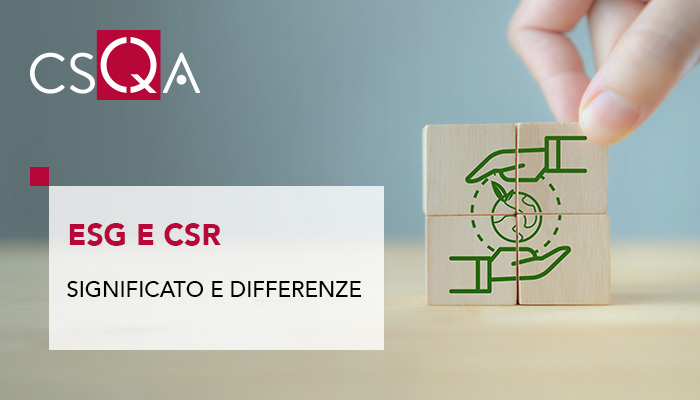
Climate change is quickly showing society the bill for not being sustainable in recent years.
It has only been a few years since we have heard of Corporate Social Responsibility ( CSR ) or corporate social responsibility, i.e. a business model that allows a company to put into practice a set of policies, interventions and behaviors aimed at maximizing profit while respecting the social and environmental needs of the community . This model is especially adopted because it allows companies to show their stakeholders the will to be more sustainable at an environmental, social and corporate level. To do this, companies carry out communication campaigns, events and press releases, so as to draw attention to them.
Similarly, the acronym ESG , i.e. Environmental , Social and Corporate Governance (ESG), has gained much popularity in recent years. This acronym indicates criteria that can be measured to rigorously understand how sustainable a given company is.
Many companies publish their ESG report on their website every year.
These reports contain within them the results in the field of sustainability announced in their CSR plans: typically they concern the environmental sector, the social one, and in the corporate governance sector, necessary to guarantee stakeholders certain standards and ethical conduct within the company.
What is the difference between CSR and ESG
These two acronyms are often used interchangeably.While they represent two sides of the same coin , they have differences: CSR can be internalized by a company communicating that it is committed to being more sustainable and responsible , while ESG criteria are used to measure the progress made by the company, such as an increase in recycled materials within a certain time frame and the planting of a certain number of trees in 10 years.
ESG criteria can be used to evaluate , through data , how well a company adheres to the sustainability and corporate responsibility objectives it has set in the context of CSR . (Source: Niccolò Ellena, https://www.money.it/ )